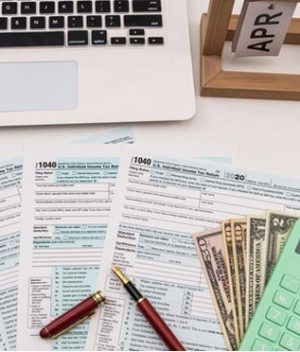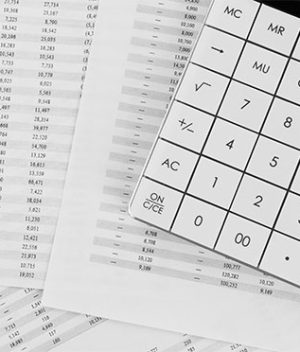By spthomas
The One-Hour Tax Checklist That Could Save You Hundreds of Dollars
Time goes very swiftly. But only one hour—yes, just 60 minutes—can help you retain more of your money instead of losing it because you missed tax benefits and deductions.
It’s not about doing everything perfectly with papers. It’s all about being smart, ready, and a bit more attentive. And the good news? It’s not as hard as you may assume.
There aren’t a lot of technical terminology or extended lectures on this list. It’s easy to understand, nice and goes straight to the point. It’s like a helping push that shows you all you need to do before you file your taxes or even after you’ve already sent them in if you want to prepare better for next year.
Let’s dive in, minute by minute, and make your next hour count.
Minute 1–10: Pull Together the Basics
Start with the simple stuff. These are the forms and details you’ll need before anything else.
- W-2 forms from employers
- 1099 forms from freelance work, side gigs, or contract jobs
- Bank interest statements
- Mortgage interest statement (Form 1098)
- Property tax payments
- Health insurance records
- Any letters from the IRS
Gathering these first saves you time later. It helps you stay organized and avoids errors that could cost money or delay your refund.
Minute 11–20: Check for Missed Deductions
This part surprises a lot of people. Many assume they don’t qualify for deductions, but even small things can add up quickly.
Take a closer look at:
- Charitable donations—cash, goods, and even mileage driven for charity
- Job-hunting expenses
- Teacher expenses (if you work in education)
- Interest on student loans
- Home office costs (even if it’s just a corner of a room)
- Mileage for work-related travel
- Union dues or memberships related to your job
You don’t need to have massive receipts. Just double-check what you paid for, what qualifies, and what you can reasonably prove.
Minute 21–30: Focus on Tax Credits
Credits lower your taxes directly, which is different—and often better—than deductions.
Many people overlook these:
- Earned Income Credit (EIC): especially helpful for low to moderate-income earners
- Child Tax Credit: don’t forget this if you have children under 17
- Child and Dependent Care Credit: applies if you pay for childcare while you work
- Saver’s Credit: if you contributed to a retirement account and meet the income guidelines
- Education Credits: like the Lifetime Learning Credit or American Opportunity Credit
Just reviewing this section could mean hundreds of dollars back in your pocket. It’s worth checking even if you’re not sure whether you qualify.
Minute 31–40: Review Income You Might Forget
Some income slips through the cracks and later creates confusion, extra taxes, or penalties. These sources are often missed:
- Unemployment benefits
- Gambling or lottery winnings
- Rental income
- Interest or dividends from investments
- Payments from digital platforms like Etsy, eBay, or Airbnb
- Cryptocurrency transactions
Review these and report them correctly. It’s not just about staying honest. It’s about avoiding unexpected bills or audits down the line.
Minute 41–50: Evaluate Retirement and Health Contributions
This is where forward-thinking pays off. If you contributed to an IRA, HSA, or 401(k), you might still be able to adjust how much you’re reporting—especially if you’re filing before the deadline.
A lot of donations made at the beginning of the new year still count for the previous tax year. Here’s what to check:
- Did you make an IRA contribution? Can you add more before the deadline?
- Did you contribute to a Health Savings Account (HSA)?
- Do your records show how much went into your retirement plan that your company pays for?
Making just a few small changes here—if the timing works—can lower your taxable income significantly.
Minute 51–60: Go Over Last-Minute Items
Use the final 10 minutes as your review round. This is when you catch mistakes or add anything you forgot earlier.
Checklist for this wrap-up:
- Double-check Social Security numbers for everyone listed
- Confirm your direct deposit info is correct
- Make sure all your forms match your records
- Check that your total income looks accurate
- Review your dependents or if there are any new additions or changes
- Revisit any deductions or credits you hesitated on
This is also a great time to glance at last year’s return. It provides you a starting point and could even help you remember things you forgot.
Why This Hour Matters More Than You Think
Many people rush through their taxes or hand everything off to someone else without a second thought. That’s fine—but even then, knowing what’s included (and what’s missing) helps.
Taking just an hour to go through this checklist often leads to three powerful benefits:
- You keep more money—because you’re not overlooking deductions or credits
- You avoid surprises—no unexpected taxes due later
- You gain confidence—you know what’s going on with your return
It’s not about being perfect. It’s about being prepared.
This one hour could mean the difference between a refund and a payment, between comfort and confusion. It’s a small time investment with a big reward.
Quick Recap: Your 60-Minute Tax Checklist
Here’s everything you just walked through in quick bullet form:
- Gather W-2s, 1099s, and basic forms
- Review overlooked deductions
- Explore available credits
- Check for income from side sources
- Review retirement and health contributions
- Wrap up with a final check
This is your cash. No one will care more about maintaining it than you do. The more you understand what goes into your tax return, the better off you’ll be—not just this year but every year moving forward.
Final Thought
This hour isn’t about stress or complexity. It’s about clarity. About keeping what you’ve earned. About ensuring that nothing is lost.
Every bit you save counts. Every detail you review matters. So next time you think taxes are too complicated, remember this simple truth: sixty focused minutes can help you keep hundreds of dollars right where they belong—with you.




